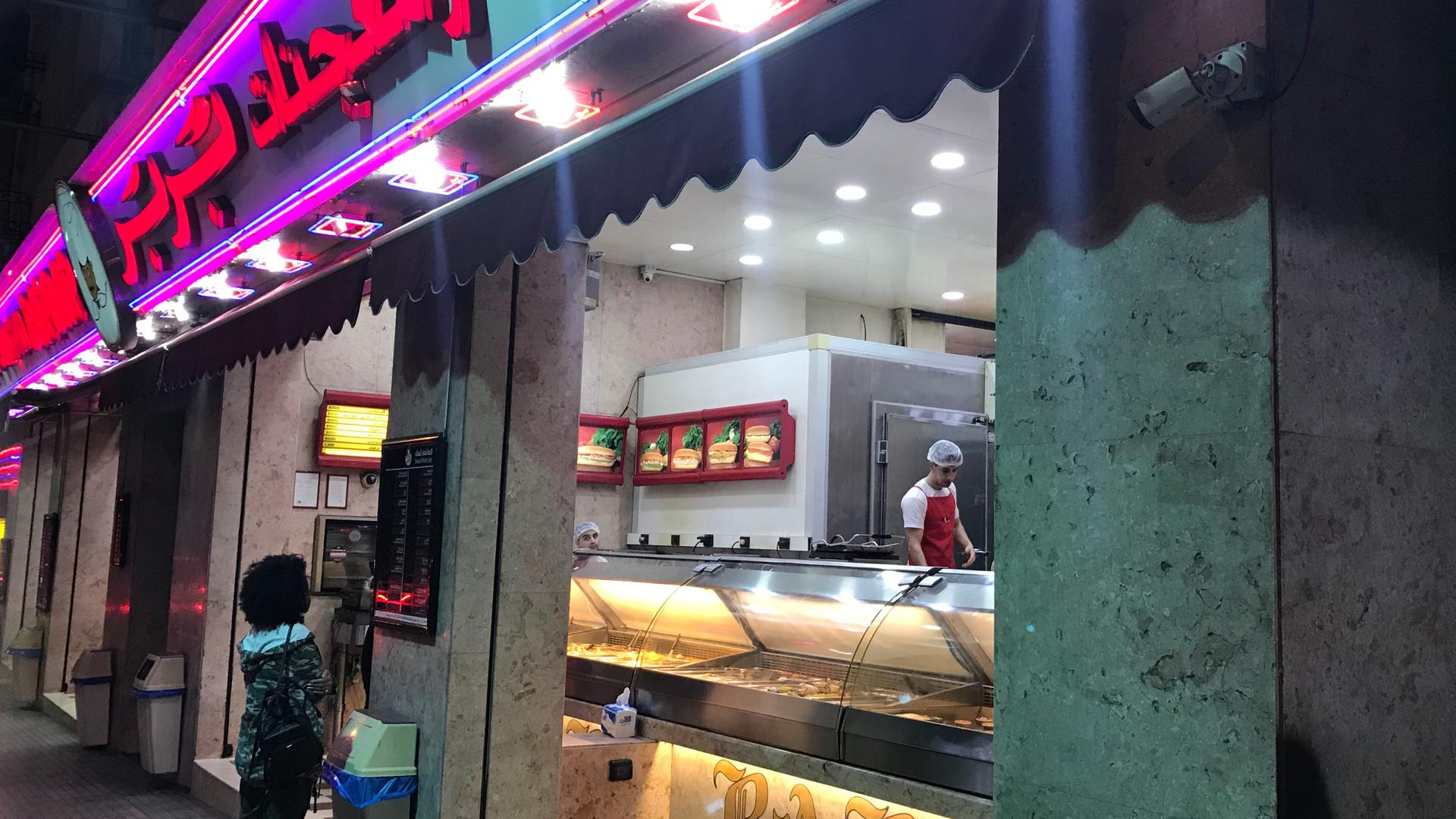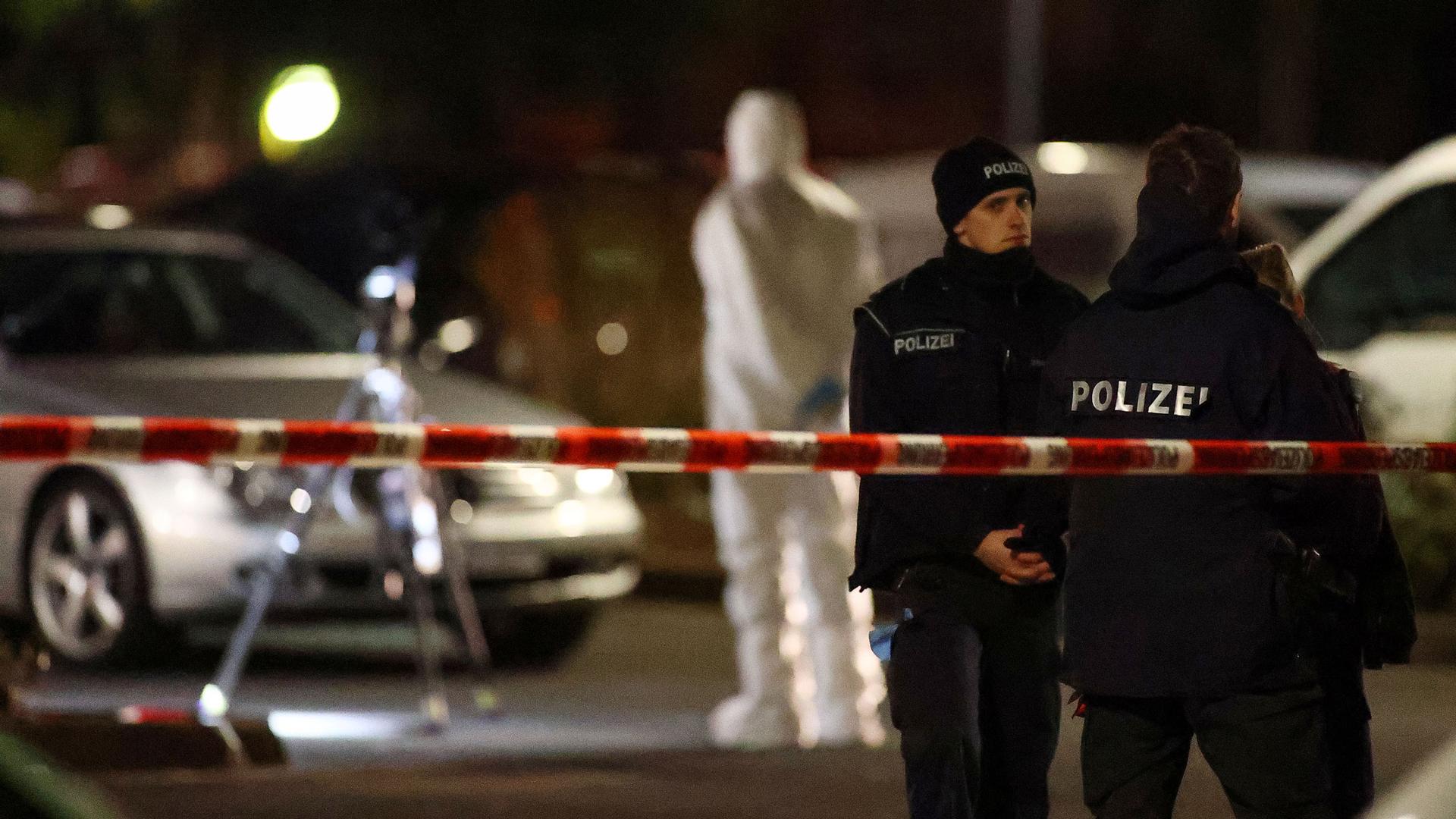Gunman opens fire in Germany; Trump names new Director of National Intelligence; and domestic workers trapped in Lebanon
Police officers are seen after a shooting in Hanau near Frankfurt, Germany, Feb. 20, 2020.
Top of The World — our morning news round up written by editors at The World. Subscribe here.
At least nine people were shot dead and four injured in an attack on two hookah bars in Hanau, Germany, late Wednesday. Most of the victims of the shooting were from immigrant backgrounds; five were Turkish nationals.
The suspected shooter, a 43-year-old male, was later found dead at home, next to the corpse of his 72-year-old mother. German officials, including Chancellor Angela Merkel, say there is evidence that the suspect had far-right, xenophobic motives. A letter claiming responsibility was found at his home and a video detailing conspiracy theories was also found.
“What police forces have been noticing across Europe is that they fear that right-wing extremism is on the rise, and that these people can also have access to guns both legally and illegally. That raises the alarm,” said Nils Duquet, a senior researcher at the Flemish Peace Institute.
Elsewhere: Earlier this month 29 people were killed in Thailand’s northeastern city of Nakhon Ratchasima, an unprecedented attack in the country.
Trump names loyalist acting director of intelligence
US President Donald Trump named Richard Grenell, current ambassador to Germany, as acting head of the nation’s intelligence agencies. Grenell is a fierce loyalist of the president, and has drawn scrutiny for his outspoken — and often undiplomatic — manner. The director of national intelligence often serves as a neutral arbiter — Grenell’s ideological stance is in line with the president’s, prompting some concern about objectivity.
Critics have also pointed to his lack of national intelligence and high-level bureaucratic leadership experience. Grenell, who is thought to be the first openly gay cabinet member, has pushed for LGBTQ rights in his current role as ambassador — one that he is expected to maintain even as acting intelligence director.
In other US political news …
Democrats sparred last night in Nevada, where billionaire Mike Bloomberg received an icy welcome to the debate stage from other Democratic candidates — especially Sen. Elizabeth Warren, who has harshly criticized the former New York mayor for “buying” his way into the race. (Bloomberg has spent more than $300 million of his own money on his campaign.)
And Trump associate Roger Stone, convicted on multiple counts of lying to Congress and witness tampering in the Mueller investigation, could face prison following a sentencing hearing set for today. But will he? Trump hinted that a clemency might be in store for his longtime friend, which would be another in a string of pardons and commutations for political allies.
South Korean city quiet after coronavirus ‘super-spreading event’
Health authorities in South Korea have identified a “super-spreading event” of the coronavirus at the Temple of the Tabernacle of the Testimony church in Daegu, South Korea’s fourth-largest city of 2.5 million people. The sect accounts for 30 of 53 new cases in South Korea. The streets of Daegu were abandoned and shopping malls and cinemas were quiet as South Korea tries to prevent the COVID-19 outbreak from spreading.
From The World: Airbnb hosts try to navigate coronavirus challenges
As Lebanon’s economy spirals, foreign domestic workers remain stranded

As Lebanon’s economy teeters on the brink of collapse, Tsigereda, a domestic worker from Ethiopia, considers herself lucky to be one of the few migrants she knows who are still being paid by their employers.
Strained by soaring debt, Lebanon is facing its worst financial crisis since its 15-year civil war ended in 1990. Owed months or even years’ worth of wages, migrants are unable to afford plane tickets home. And because employers and migrant recruitment agencies often confiscate workers’ passports, many are literally trapped in Lebanon.
“Now there is no money in Lebanon. Girls want to go home. But without money, they cannot get home. And if nobody helps them, then they will have to go back to their employer and work for nothing. Maybe they will be abused — beaten or raped.”
Morning meme
Computer whiz: China dominates the global area when it comes to computer production, but it might not have been possible without Xia Peisu. Meet the woman who pushed computing from a geeky obsession into a transformative industry.
In case you missed it
LISTEN: Syria’s ongoing humanitarian crisis continues to worsen

The humanitarian crisis in northwestern Syria is massive. Since December, an estimated 900,000 civilians have fled from their homes as Syrian government forces — with Russian military help — have continued their offensive in Idlib province. Now, Turkey’s president says it’s “only a matter of time” before Turkish troops launch an operation of their own. And, as COVID-19 spreads, online platforms like Airbnb are telling users and hosts to take cautionary measures. Also, the British government is planning to implement a points-based immigration system in 2021 that aims to only attract high skilled foreign workers.
Don’t forget to subscribe to The World’s Latest Edition podcast using your favorite podcast player: RadioPublic, Apple Podcasts, Stitcher, Soundcloud, RSS
